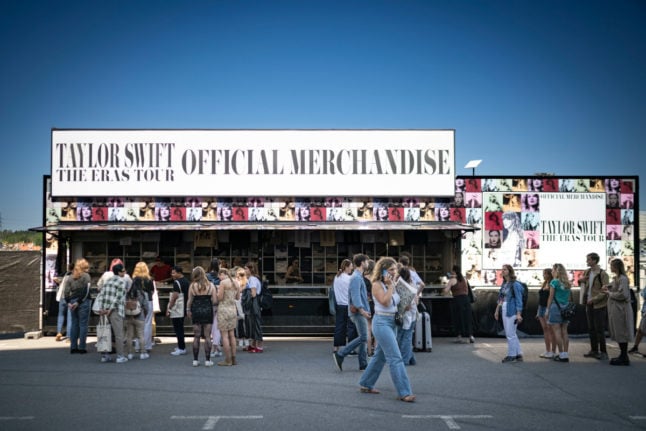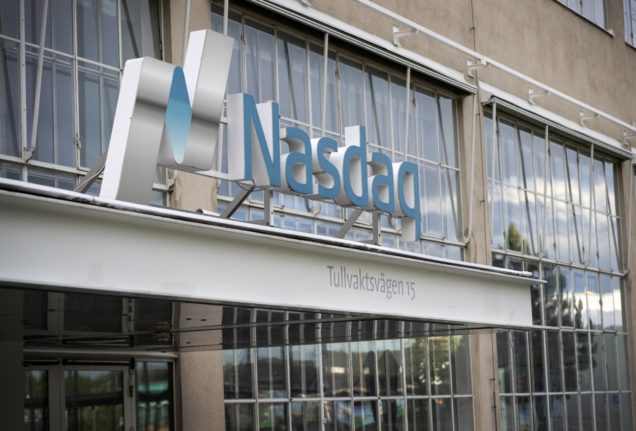The weak Swedish currency, the krona, means tickets for Swift’s three Stockholm dates are more affordable than elsewhere for many foreigners.
Fans around the world seem to have heeded Swift’s lyric “Grab your passport and my hand”, with “Swifties” from 130 countries flocking to Stockholm. Many queued through the night outside the Stockholm arena before the US star’s first concert on Friday.
“In total we will see approximately 150,000 people attending the concerts in Stockholm. Of them, 120,000 will be traveling to Stockholm,” Stockholm Chamber of Commerce chief economist Carl Bergkvist told AFP.
“They will be spending approximately half a billion Swedish kronor ($46 million) during their stay here in Stockholm,” he said.
That is money dished out on hotels, meals, shopping and transport, among other things, but not concert tickets or flights, Bergkvist said.
After opening her European tour in Paris last weekend, Swift’s Stockholm shows are her only dates in the Nordic region.
The Visit Stockholm tourism agency was also in on the hype, with its webpage on Friday proudly declaring “Welcome to Swiftholm”.
But last-minute tourists will struggle to find a hotel room in the city.
“We have approximately 40,000 rooms in Stockholm – 80,000 beds – and 120,000 people coming here. So we will be out of hotel rooms and we see a price spike of approximately 295 percent,” Bergkvist said.
“As soon as these three concerts were announced, there was immediately a surge in demand,” Åsa Lilja, commercial director at hotel chain Ligula Hospitality Group, told AFP.
“This also led to a rise in prices,” she said.
Swift-flation?
Sweden has only recently managed to bring down recent years’ stubbornly high inflation.
Economists have expressed fears that the Swift craze could send Swedish consumer prices rising again, as they did when pop diva Beyoncé opened her European tour in Stockholm last May.
“There’s a risk that prices will rise for hotel and restaurant visits, the concert tickets and everything that goes along with” the show, Danske Bank economist Michael Grahn wrote in a note.
However, “the price pressure would have to be even stronger than (the Beyoncé effect in May) last year to be reflected in the inflation figures”.
Swedish central bank governor Erik Thedeen even took the influx of foreign Swifties as a sign that the Swedish “krona was fundamentally undervalued”.
“It’s clearly a bargain to come to Stockholm,” he said.
Meanwhile, fans seemed ready to spend whatever it takes to see Swift perform.
“I spent around 7,500 kronor ($697) in total for three tickets. I think it’s worth it,” said Filippa, a 21-year-old Swedish fan queuing up early Friday for the evening’s concert.



 Please whitelist us to continue reading.
Please whitelist us to continue reading.
Member comments